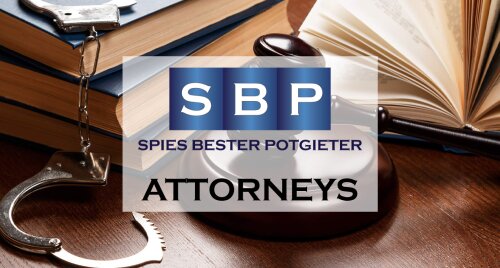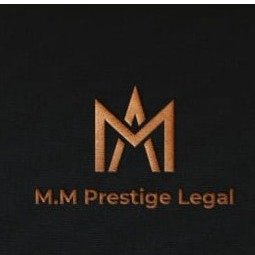Best White Collar Crime Lawyers in Pretoria
Share your needs with us, get contacted by law firms.
Free. Takes 2 min.
List of the best lawyers in Pretoria, South Africa
About White Collar Crime Law in Pretoria, South Africa
White collar crime in Pretoria, South Africa, involves non-violent criminal activities typically committed in business or professional contexts for financial gain. These crimes can include fraud, embezzlement, insider trading, money laundering, and other deceptive practices. Due to Pretoria's status as a major city with significant business and government activities, it serves as a central hub where such crimes might be detected and prosecuted. The legal system in Pretoria is robust, with specialized units within law enforcement and specialized courts dedicated to addressing these types of crimes.
Why You May Need a Lawyer
Individuals or businesses may require legal assistance in white collar crime for several reasons:
- Being accused of or charged with a white collar crime can have severe consequences, including fines and imprisonment.
- Victims of white collar crime may need legal assistance to recoup losses due to fraud or embezzlement.
- Companies may need legal help to conduct internal investigations to prevent or address fraud.
- Legal guidance is crucial during interactions with regulatory bodies, ensuring compliance and minimizing risks.
- Legal experts can help in the negotiation and settlement of cases, potentially avoiding lengthy trials.
Local Laws Overview
In Pretoria, several laws and regulations are relevant to white collar crime:
- The Prevention and Combating of Corrupt Activities Act: This act targets corruption in both public and private sectors, detailing offenses and setting punitive measures.
- The Financial Intelligence Centre Act: This law aims to identify and combat money laundering activities by requiring institutions to report suspicious transactions.
- The Companies Act: Sets the legal framework for corporate governance, emphasizing transparency and accountability within companies.
- The Protection of Personal Information Act (POPIA): Ensures personal data protection, illegal breaches of which can constitute a white collar crime.
- The National Credit Act: Regulates credit information and enforces consumer rights, addressing instances of credit fraud.
Frequently Asked Questions
What constitutes a white collar crime in Pretoria?
White collar crimes are non-violent offenses that are primarily of a financial nature, such as fraud, bribery, insider trading, and embezzlement.
What should I do if I am accused of a white collar crime?
Immediately seek legal counsel to understand the charges and potential defenses, as well as to ensure your rights are protected throughout the legal process.
Can a company be held liable for white collar crimes?
Yes, a company can be held liable if white collar crimes were committed by its employees in the course of their duties, especially if the company fails to prevent them through negligence.
How does the legal process work in Pretoria for white collar crimes?
The process usually involves an investigation by law enforcement agencies, potentially followed by formal charges, a trial, and possibly an appeals process.
What penalties can one face if convicted of a white collar crime?
Penalties can range from fines and restitution payments to imprisonment, depending on the severity and specifics of the crime.
Can white collar crimes be reported anonymously?
Yes, anonymous tip lines and online reporting platforms exist to report suspicious activities related to white collar crimes.
Is it possible to settle white collar crime cases outside of court?
Yes, it is possible through negotiation and settlement agreements, but this depends on the nature of the crime and agreements with prosecution.
How can businesses protect themselves from being victims of white collar crime?
Implementing robust internal controls, regular audits, and employee training programs are effective ways to minimize risks.
What role do forensic accountants play in white collar crime cases?
Forensic accountants analyze financial records to uncover fraud and provide expert testimony during legal proceedings, helping to build a case.
How long does a typical white collar crime case take to resolve?
This varies based on the complexity of the case, the quality of evidence, and the legal strategy employed by both sides. Cases can take months to several years.
Additional Resources
There are several resources available for individuals seeking further assistance or information regarding white collar crime:
- The South African Police Service (SAPS): Offers resources for reporting and understanding crimes.
- The National Prosecuting Authority (NPA): Prosecutes cases of national importance, including major financial crimes.
- The Association of Certified Fraud Examiners (ACFE): Provides training and support for dealing with fraud and related white collar crimes.
- Legal Aid South Africa: Offers assistance to qualifying individuals needing legal aid.
- South African Institute of Chartered Accountants (SAICA): Provides resources on financial regulations and compliance.
Next Steps
If you need legal assistance regarding white collar crime in Pretoria, consider the following steps:
- Consult with a lawyer who specializes in white collar crime to understand your options and develop a legal strategy.
- Gather all relevant documentation that pertains to the situation, such as financial records and communication logs.
- Consider the resources and support you'll need, and reach out to any relevant organizations or bodies for additional guidance.
- Remain informed about any developments in your case and stay in close contact with your legal representative.
Taking immediate and informed action is crucial to effectively addressing white collar crime concerns, whether as a defendant or as a victim.
Lawzana helps you find the best lawyers and law firms in Pretoria through a curated and pre-screened list of qualified legal professionals. Our platform offers rankings and detailed profiles of attorneys and law firms, allowing you to compare based on practice areas, including White Collar Crime, experience, and client feedback.
Each profile includes a description of the firm's areas of practice, client reviews, team members and partners, year of establishment, spoken languages, office locations, contact information, social media presence, and any published articles or resources. Most firms on our platform speak English and are experienced in both local and international legal matters.
Get a quote from top-rated law firms in Pretoria, South Africa — quickly, securely, and without unnecessary hassle.
Disclaimer:
The information provided on this page is for general informational purposes only and does not constitute legal advice. While we strive to ensure the accuracy and relevance of the content, legal information may change over time, and interpretations of the law can vary. You should always consult with a qualified legal professional for advice specific to your situation.
We disclaim all liability for actions taken or not taken based on the content of this page. If you believe any information is incorrect or outdated, please contact us, and we will review and update it where appropriate.
















